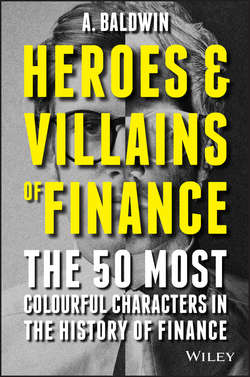Читать книгу Heroes and Villains of Finance - Baldwin Adam - Страница 8
На сайте Литреса книга снята с продажи.
04 NICOLE ORESME
Оглавлениеc.1320–1382
Undoubtedly one of the greatest economic thinkers of the middle ages, the European roots of the quantity theory of money originate from the workings of Nicole Oresme.
Born in Normandy (France) around 1320, Oresme studied theology, and eventually rose to become Bishop of Lisieux, and chaplain and advisor to King Charles V.
Oresme lived throughout a period of great financial upheaval in France; unlike the contemporary relative stability of many Western currencies, French monarchs freely manipulated their currency for personal gain. For example, between 1295 and 1305 the value of the French currency was reduced by 80 %, subsequently to return to its original value in the following decade and then to fall once again the next decade.
Thus, much of Oresme's work deals with his concerns about the persistent, aggressive and arbitrary changes to the value of money resulting from successive devaluations by the French ruling classes for their own personal gain.
As the author of the first independent, comprehensive economic thesis, Oresme represents a key milestone in the development of early economic literature.
His thesis provided the first statement on the quantity theory of money, taking inspiration from the monetary policies of his contemporary French monarchs. Oresme condemned devaluations and instead highlighted the importance of maintaining the perceived value of the national currency in order to provide stability.
ORESME'S LEGACY WAS SEALED WHEN HE OUTLINED THAT THE RULING MONARCH HAD A DUTY TO THEIR NATION TO ACT AS PROTECTOR (AS OPPOSE TO OWNER) OF THEIR NATIONAL CURRENCY
LAYING THE FOUNDATIONS FOR SUBSEQUENT FREE-MARKET ECONOMISTS TO BUILD UPON ULTIMATELY ORESME BELIEVED THAT THE PRODUCTION OF MONEY SHOULD BE LEFT TO THE FREE MARKET.
